"On many afternoons around 4 or 5 p.m., I’ve been overcome with the sensation that my life is effectively over"
Meghan Daum's new book & some other books, Margaux at MOCA & a bit more Zagreb
It’s a point of pride for me that Long Play readership has always been multi-partisan. To those of you running or working for a party and getting the vote out today: good luck and thank you for your service. We’ll talk about this election after the dust settles.
The Catastrophe Hour: Selected Essays by Meghan Daum
When was it that you stopped listening to new music? That is, when did you decide that what was being produced and performed since you stopped paying attention is just not good music, and will never be as good as yours? It almost doesn’t matter what it is. Autotune, disappearance of poetry from rap, song-making by a committee, sexualization and blandification of the female pop star, the end of the band, or going back further, the amplification, the decline of the singer-songwriter, and so on - it doesn’t matter what it is, there will always be a reason.
We all reach this point, and it’s just one of the milestones of the aging process, a sure indicator that you are getting on. Meghan Daum in her new collection of essays (published by a boutique British indie, props again to independent publishing) is well attuned to this and similar existential moments when we pass, as if through a portal, into the third age. And Generation X has its own unique story to tell here, as we know the time before the internet as well as the internet age, both as workers and consumers of media. Halfway through life's journey, we had to reinvent ourselves.
All of the essays collected here are written from the position of experience, reporting from what Daum calls the ‘broken-in world’: life that experienced divorce, death of parents, dramatic financial fluctuations, real estate uprootedness, large-scale ideological shifts in institutions. Not children, though: she writes from the position of a woman who never wanted them, but this outlook evolved with experience too and one of the essays documents how she moved from being a freedom-from-children polemicist-proselytizer to a supporter of childbearing by other people. Those of us who’ve listened to her podcasts will know that there’s been a further step: she is a pro-natalist for others. Her own decision to remain childless and live alone is one of the few things she has no regrets about: “I am so lucky,” and we believe her.
I don’t really see my life in that precise way, but I periodically re-read her essay on preferring to spend Thanksgiving (or Christmas, or any family-heavy holiday) on her own and think, this is still persuasive, this is still right.
Where I feel particularly seen is in the pages describing her fussiness around the end-of-life decisions, and any person who lives solo and hasn’t got any family left around her will understand this well. She dedicates many darkly funny pages to her ruminations on what will happen to her possessions if she suddenly dies, and she seems to be giving a lot of thought, as one must, to the logistics of one’s burial (she’s currently mostly in favour of ‘natural burials’ but the natural burial cemeteries are far from where she lives in LA, which is pretty much how things are in Toronto as well. You could opt for one, but it will have to be in Coburg).
The only essay that I’ve read as an anthropologist from another country was the piece about loving large dogs and not being able to imagine life without one. (Her current canine companion is called Hugo and is a St. Bernard.) Europeans mostly grow up in apartments and when and where I was growing up in Communist Eastern Europe there was no culture of urban pet ownership, so this has always been a peculiarly Western World thing for me. Rearranging your life – home, travel plans, interactions with other humans - around a pet animal is not something I understand, but she does a good job making it close to comprehensible.
One other thing that I can’t follow Meghan Daum all the way through is her commitment to the personal essay. Essays have been personal from the get-go (see under Montaigne), but something happened in the last 10-20 years to North American nonfiction writers that made them incapable of looking outside themselves, so we have personal essays of gorier and gorier emotional exhibitionism going viral every few months. But what will happen to the professionally edited, painstakingly crafted personal essay, the kind of which Daum made a writerly career on, now that everyone is sharing their unprocessed ‘lived experience’ on multiple platforms day in, day out? Well, it will end, Daum writes - and that particular vein from which to write has almost completely dried out for her at any rate. In her final essay, on “the end of the personal”, she predicts that some other sources of writing will appear, and maybe the personal will be alchemized in a form different from the personal essay, and I salute this development. Already the Catastrophe Hour essays come with socio-politico-historical inflections and many are written with a long view, not the current view, in mind. (Interestingly, there are very few mentions of the pandemic in this book, and no essays about it, so I presume Daum doesn’t believe it will have changed anything about our societies to a significant degree and will recede eventually, the way of 9/11, another event that was to change everything.)
Writing, Daum admits, has become harder in the age of endless content churn, with her time now being eaten up by podcast making, Substack running (she is making good use of the new Live feature), online community moderation and retreat organizing. If it’s hard, as a reader I’ll say selfishly that it’s the good-hard, because this effort clearly results in some outstanding pages - probably some of the best she’s ever written.
Further books
I loved this illustrated history of Toronto by Brian Gable, the Globe’s former editorial cartoonist - and his profile of Toronto as a no-nonsense, bespectacled, the opposite of manic pixie girl is on point - but there’s one thing that puzzles me. No pages were dedicated to the indigenous part of Toronto’s timeline. We are pretty much jumping from the Pleistocene era to the arrival of the Europeans. Did the author worry he would offend by putting Indigenous people in a cartoon? That he couldn’t avoid mentioning that tribes fought among themselves (which would have to be said if he was to include Tabor Hill, the oldest burial ground in the city)? It’s the one off-key note in this otherwise thoroughly charming project.
Sarah Leipciger is a Canadian who lives and raises her kids in London, UK but Moon Road is as CanCon as it gets: a road movie about a pair of aging exes driving from small town Ontario to Vancouver in order to, perhaps, we don’t know till the last page, get a resolution to their daughter’s disappearance many years earlier. It’s the working class version of one of those trips with William that Elizabeth Strout puts Lucy Barton on, but told with a writing-program, MFA type excellence. The backstory is slowly built through strategically revelatory flashbacks as the pair progress through the country. The ending, a bit of a whimper, makes you realize the novel is not a mystery but an account of two people learning how to overcome.
Margaux Williamson at MOCA
These are Williamson’s most recent paintings and all the usual fun stuff is here: off kilter perspective; design pattern sampling (for example, a carpet will show its design pattern in one spot only, the rest you can imagine); the inside and the outside all mixed up (room interiors reflecting in a window that shows an outdoors scene); plants worm-like and outlined in thick black lines. At MOCA until August 3.
LP news corner
Earlier this month, Zagreb’s reader cooperative Booksa let me sit in in one of their book clubs. The nice people of the Feminist Novel Club discussed Jenny Erpenbeck’s Kairos, which I happened to have read, and good times were had. The interesting thing about the many reader groups in Booksa is that they are populated by young people. I was by far the eldest in the Feminist Novel meeting, which was excellent news. I tried not to “impart” too much, I swear.
New podcast out of Victoria: Bad Canadians
I was only the second guest on Bad Canadians, a new heterodox pod out of BC. Jared was a great host and his questions not at all easy to tackle. The audio can be listened to on Apple podcasts and all the usual places, and the version with video is available on YT.



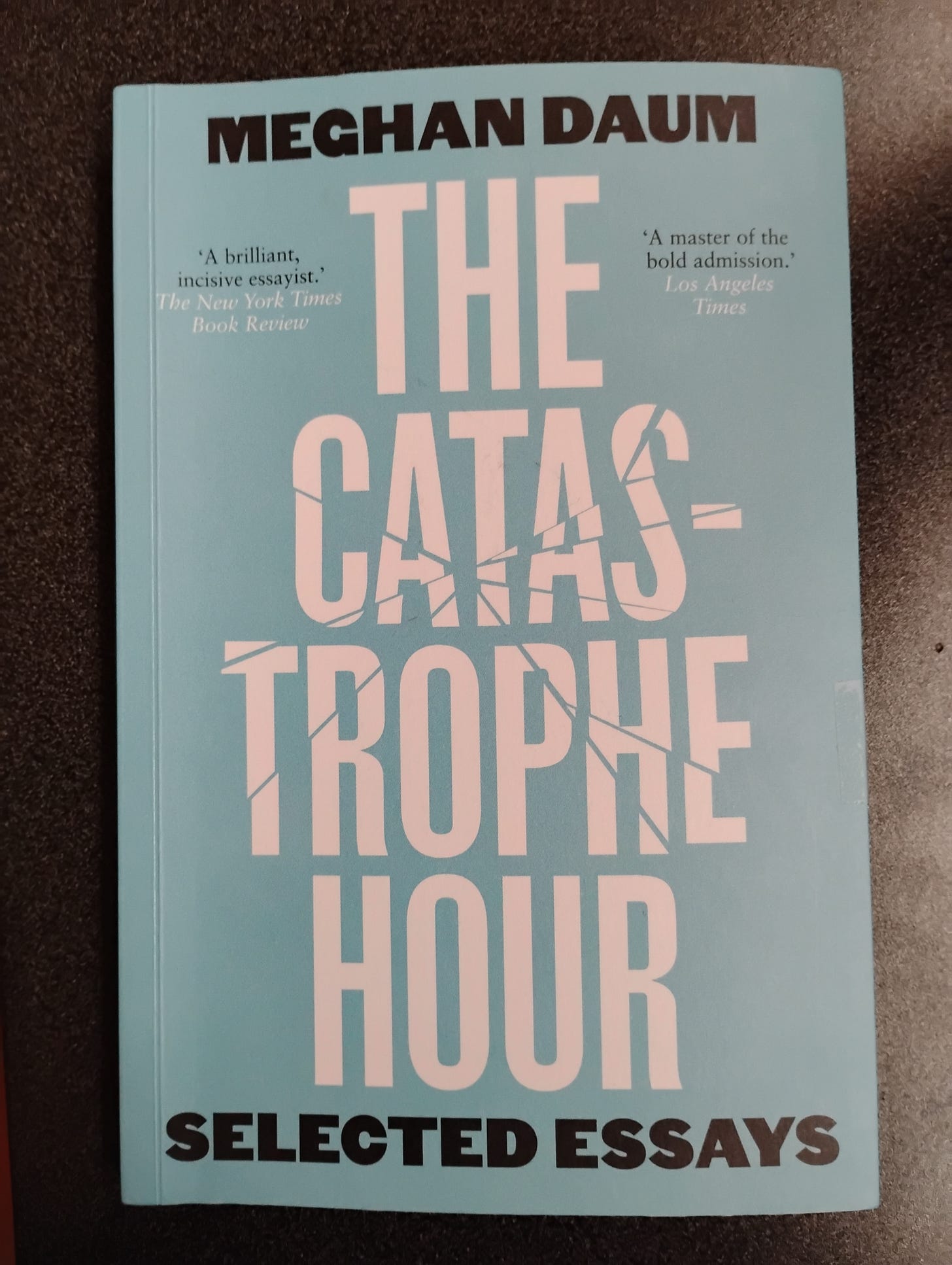

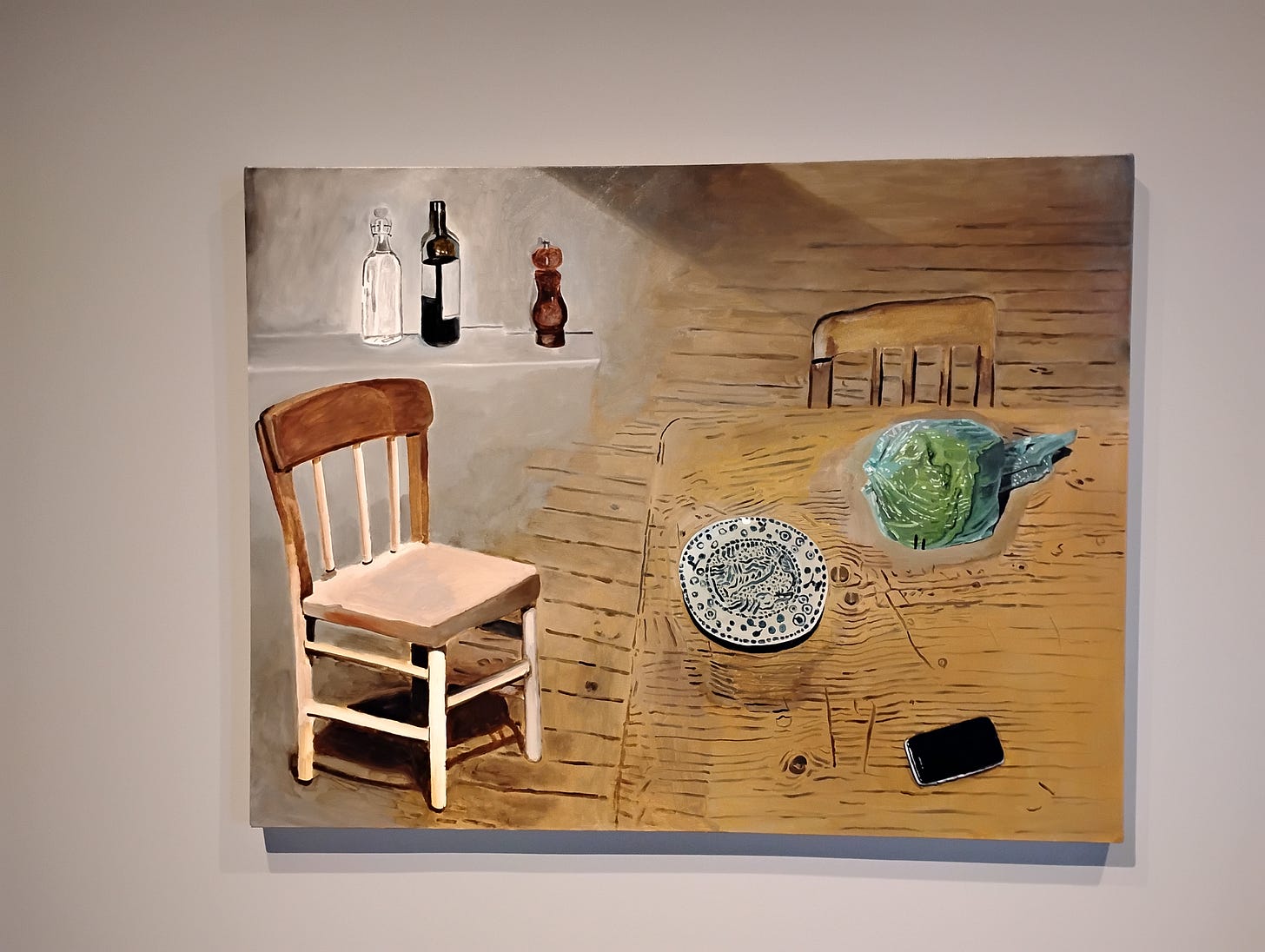
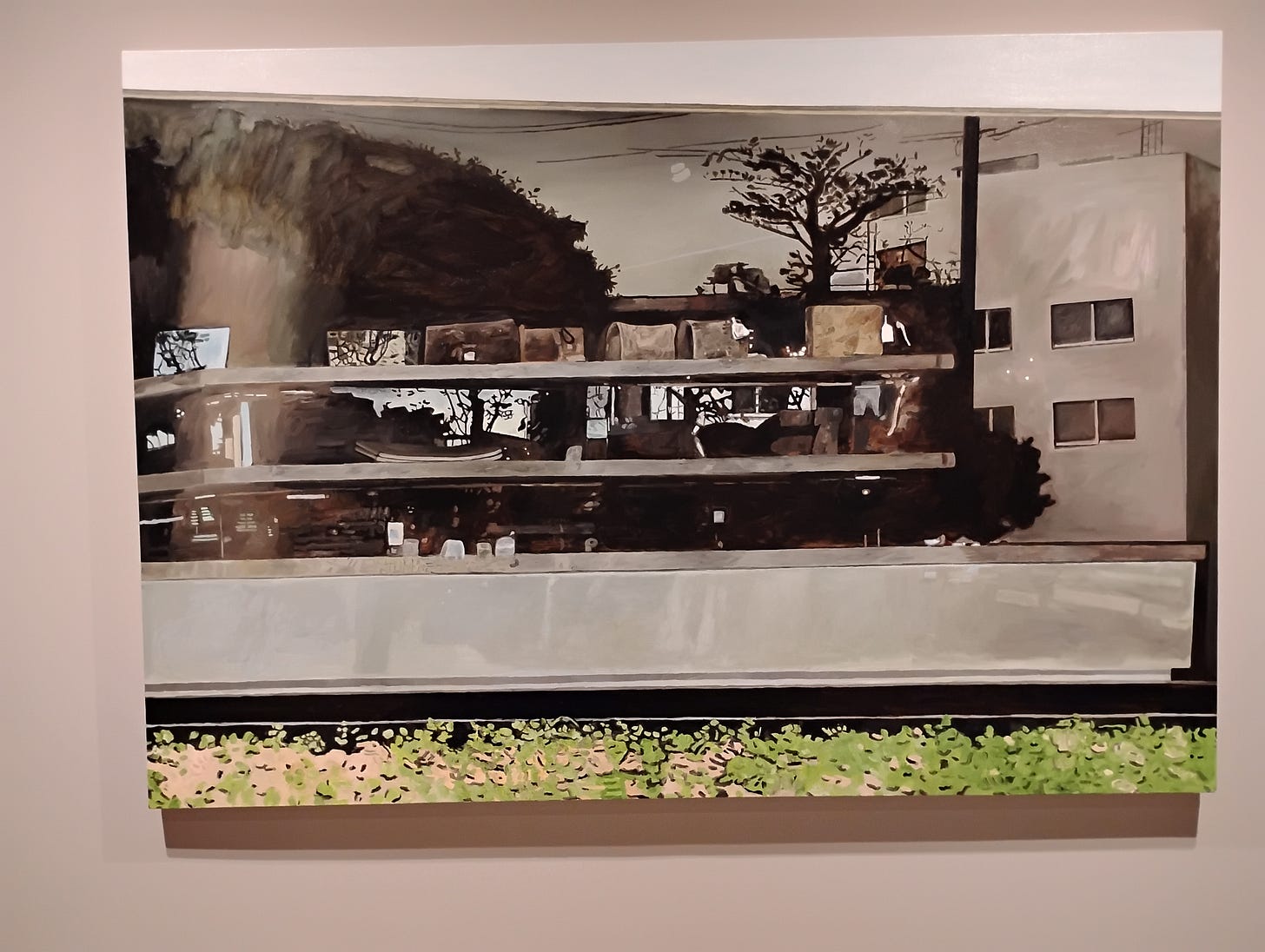
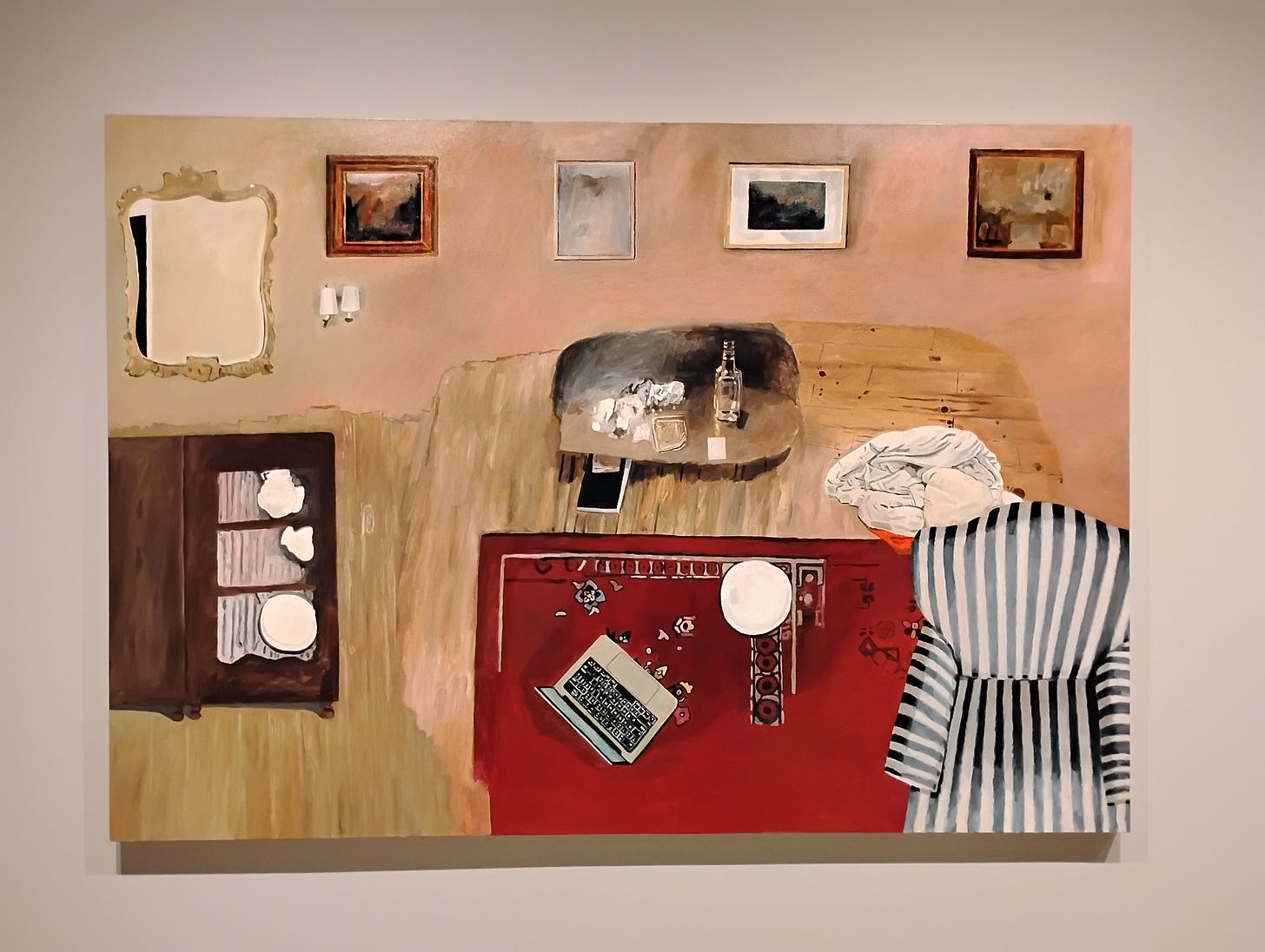

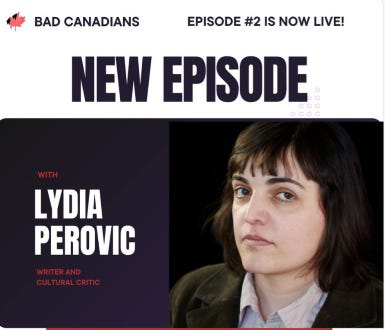
Thanks for the kind words, Lydia. Loved our conversation - your insights are more vital than ever. And those trip reports?! Looks amazing!
A good reminder that I should suck it up and buy Meghan Daum’s book, since her current iteration ain’t gonna be in DC public. Tomorrow will be a much better day to stop spending money hand over fist…